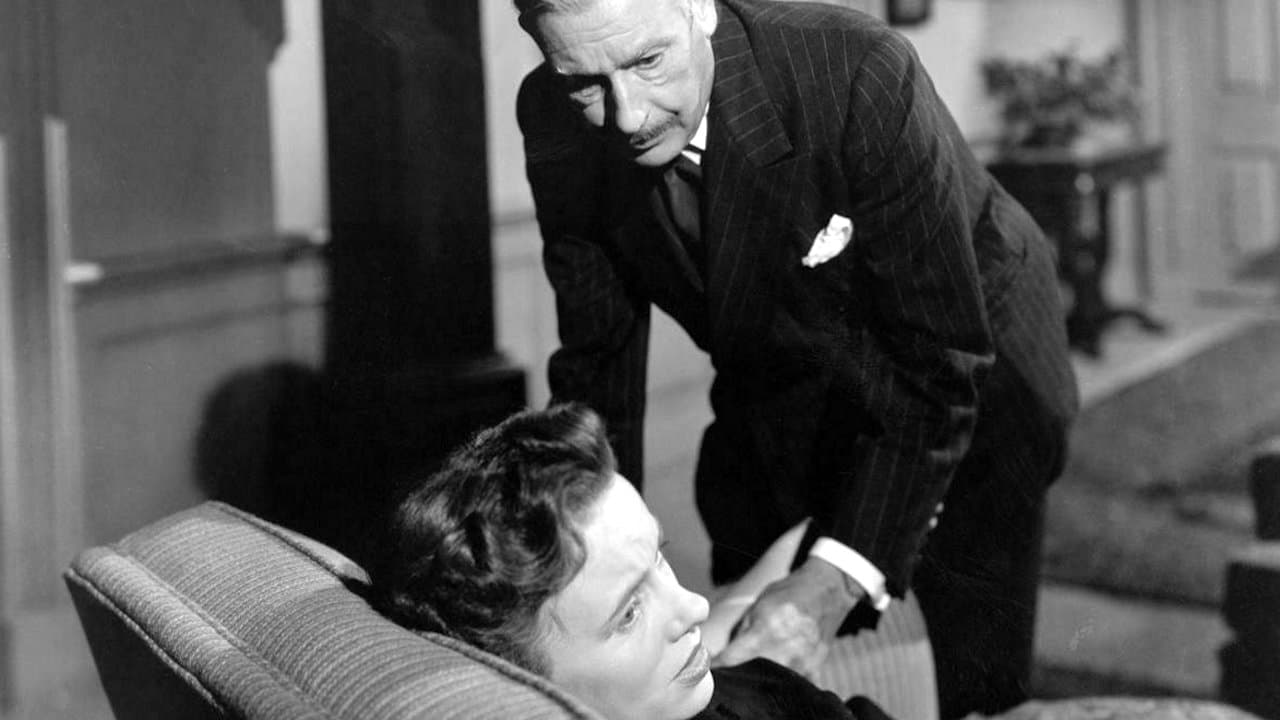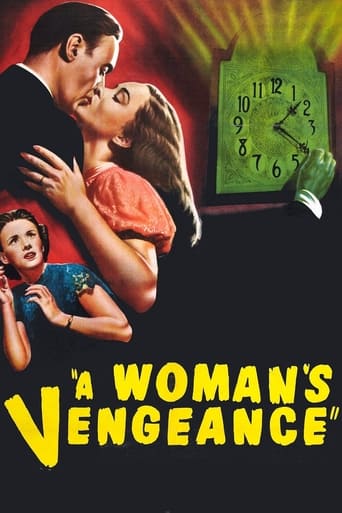Baseshment
I like movies that are aware of what they are selling... without [any] greater aspirations than to make people laugh and that's it.
AnhartLinkin
This story has more twists and turns than a second-rate soap opera.
Allissa
.Like the great film, it's made with a great deal of visible affection both in front of and behind the camera.
calvinnme
... for example it would be a bummer if "Star Wars" (SPOILER WARNING FOR ANYBODY LIVING ON A DESERT ISLAND THE LAST FORTY YEARS) had been named "My Trouble with Dad who Dresses in Black and uses Black Magic a Tad". Yet there is some mystery until about 2/3 of the way into the film, and at that point it is just very good acting that carries the day.Wealthy Henry Maurier (Charles Boyer) has an invalid wife, Emily (Rachel Kempson). And Emily whines about her condition, whines about her husband wishing she were dead, and apparently, from what Henry says, was not great companionship when she was well. Emily perhaps is picking up on the fact that Henry has an 18 year old mistress, Doris (Ann Blythe), who is getting impatient being just the mistress and being hidden away. The Mauriers also have a family friend, Janet Spence (Jessica Tandy), who is 35 and has remained unmarried all of these years taking care of her invalid dad, although she never sounds as though she thinks he is a burden. Henry finds great intellectual companionship with Janet as they talk over art, music, and literature. Henry has a problem relative in Emily's brother, who is constantly sponging off of Emily, or at least trying to. Henry intercepts him at every opportunity and tears up any checks Emily writes him.One night Henry breaks his own rule and takes Doris out in public, only for Emily's brother to see them together. He blackmails Henry for 500 dollars which he says he will collect the next morning or he will tell Emily all about it. But that is one check he will never collect, because when Henry returns home that night he learns that his wife died of a heart attack earlier in the evening. The maid is blamed for serving Emily red currants rather than the bland diet the doctor prescribed, thus upsetting her delicate system and bringing on the fatal attack.Henry's wealth must be inherited, because he has no patience or prudence. He marries Doris before Emily is cold and takes to redecorating the house to his new wife's liking. The maid, brilliantly played by Mildred Natwick, begins to suspect that maybe Emily was murdered rather than just dying of some random heart attack. Plus she is resenting being blamed for Emily's death. An autopsy is performed and arsenic is found in her system. So, who did it? Everyone thinks Henry did, and the new hot young wife, a mistress while his wife was still living, does not help any. But from the title we know a woman did it. But which one? The maid for being promised things by Emily she knew she would never receive? The new wife for getting tired of waiting for Henry to marry her? Janet for perhaps thinking that Henry cared for her only to be supplanted by someone half her age? Or maybe Emily herself, who may have known more than she was telling and wanted to end her own suffering and point the finger of guilt at Henry at the same time? Well, watch and find out, as Sir Cedric Hardwicke as the doctor cleverly unravels the whole thing like some sexagenarian protagonist from an 80s TV mystery show. This is one of Boyer's most likable roles, even if he is a two faced adulterer here. That says something for his acting (and his roles).
Alex da Silva
The very annoying Emily (Rachel Kempson) is not in good health. Thankfully, she dies. However, her death is treated suspiciously and number one suspect is husband Henry (Charles Boyer). He doesn't help matters by immediately marrying 18 year old Doris (Ann Blyth) who he has been having an affair with for a few months.This film has a good cast, especially Jessica Tandy as Henry's friend "Janet", Cedric Hardwick as "Dr Libbard" and Mildred Natwick as "Nurse Braddock". Boyer is good but Blyth is very irritating in a Shirley Temple kind of way. The film drags whenever she is on screen.The film has many good scenes, eg, when Janet and Henry are in the house sheltering from a violent storm - the use of German Expressionism in this scene (the use of darkness and lightning) will tell you all you need to know. Similarly, another good scene is when Janet visits Henry the day before his execution (the way the scene is framed will stick in your mind). And the scenes between Janet and Dr Libbard towards the end of the film are crammed with tension. I found that the film also had a particularly good moment of philosophical dialogue when Henry verbalized his acceptance of death to Doris. You will, no doubt, guess who the guilty party is from the beginning but it's still a good film to watch again.
NewEnglandPat
This film noir gem spins the tale of romance, unrequited love and revenge that conspire to frustrate a spinster in her pursuit of a man. The romance involves the man's dalliances with an attractive girl and the unrequited love is the bitter fruit of the spinster's quest to capture the man for herself. The revenge plays out its part in due course as the triangle emerges with malevolent undercurrents taking shape. The cast is excellent, especially Jessica Tandy and Sir Cedric Hardwicke, with Charles Boyer caught in the middle by the eager, determined females. Ann Blyth marries her suave suitor and sets in motion the cold fury of the spurned woman who can only watch as her dreams of happiness are dashed. The black and white camera work has a brooding quality and gives the film a classic film noir look.
bmacv
Ah, English country life – all revenge killings and red-currant fool. That's the fate that conveniently befalls Rachel Kempson, the irritating invalid spouse to squire Charles Boyer. It's convenient for him, because the lid's just been torn off his affair with his teen-aged mistress (Ann Blythe), with whom he was whiling away the evening as the bell tolled for his lawfully wedded wife.At first, the demise of that royal pain causes a general sigh of relief. It leaves Boyer free to marry Blythe, which he does; it also left him free, in the view of neighbor and intimate family friend Jessica Tandy, to marry her, which he did not. When a trouble-making nurse (Mildred Natwick), outraged by Boyer's extramarital carryings-on, goes to the police, an autopsy proves her suspicions correct: The sudden death, at first though to have a heart attack brought on by those beastly berries, turns out to be poisoning by arsenic found in weed killer. Inquest, trial and death sentence all go badly for Boyer, who awaits the scaffold claiming his innocence.
It sounds like an Agatha Christie country-house mystery – genteel homicide between rubbers of Bridge – but it's a bit more than that. Aldous Huxley wrote the script, from his story The Gioconda Smile, and he's less interested in the logistics of murder than its psychology. Today, he's remembered chiefly as author of Brave New World and as an apostle of LSD. But he was one of the more thoughtful and inquisitive popular novelists of his time, holding the sort of position Gore Vidal does today, and, like Vidal, found Southern California and The Industry congenial for living and working. He was lucky to get a director (Zoltan Korda) and a cast this good. Boyer breaks free from the debonair malevolence that, following the success of Gaslight, so often shackled him, and Blythe starts out recycling her Veda Pierce but finally realizes that this is a new role. Tandy, fresh from creating Blanche DuBois on Broadway, tackles her part – a lovesick spinster of 35 – cautiously at first, then deepens and underscores what turns out to be the movie's central role. There's a strikingly composed scene in which her face is severely framed in a high aperture overlooking Boyer's death cell when she unleashes her pent-up frustration, and Tandy does it full justice. Acting honors, however, go to Cedric Hardwicke, family physician turned psychoanalyst and father-confessor, who steals every scene simply by off-handedly underplaying. A Woman's Vengance is a Hollywood product so skillfully put together that its multi-national cast needs no cumbersome explication. It's literate, verging on the sedate, keeping attention though subtle shifts rather than clamorous developments. In its sense of the malice festering under a cultivated facade of manners, A Woman's Vengeance calls to mind another country-house movie of the same year, Sign of the Ram.

